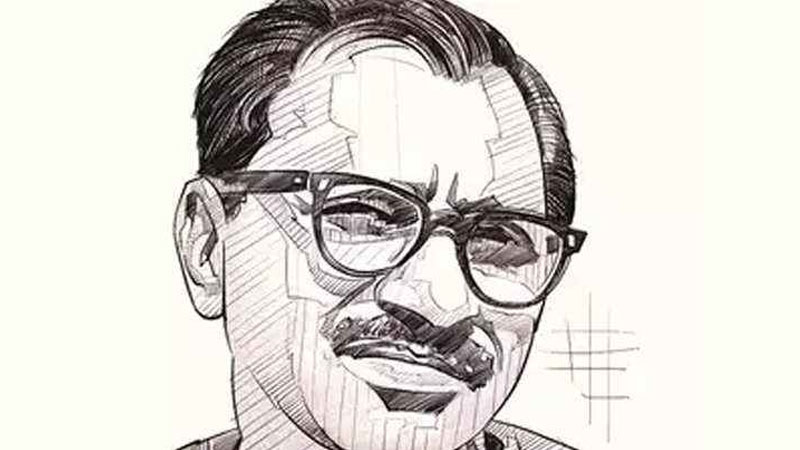FOREIGN IDEOLOGIES ARE NOT UNIVERSAL
Similarly those who would like to make western ideologies the basis of our progress forget that these ideologies have arisen in certain special situations and time. These are not necessarily universal. They cannot be free from the limitations of the particular people and their culture, which gave birth to these Isms. Besides many of these ideas are already out of date. The principles of Marx have changed both with the changing times as well as with varying conditions to the extent that parrot like repetition of Marxism for problems facing our country would amount to a reactionary attitude rather than a scientific and pragmatic one. It is indeed surprising that those who claim to reform the society by removing dead traditions, themselves fall prey to some outdated foreign traditions.
OUR COUNTRY: OUR PROBLEMS
Every country has its own peculiar historical. Social and economic situations and its leaders decide the remedies to the ills that beset the country from time to time taking into consideration its background. It is illogical to believe that remedies which the leaders of one country decided to try for their problems are likely to be applicable as such to all other peoples. A simple illustration will suffice. Even though the basic organic activity is the same in all human beings the drugs which may be helpful in England may not prove equally helpful in India. Diseases depend also upon climate, water, dietary habits and heredity. Even though the external symptoms may be apparently similar the same drug does not necessarily cure all persons. Those who apply a single panacea to all diseases must be considered quacks rather than doctors. Therefore, Ayurveda states that for the disease in each place remedy suitable to that place must be found. Therefore, it is neither possible nor wise to adopt foreign Isms in our country in the original from in toto. It will not be helpful in achieving happiness and prosperity.
HUMAN KNOWLEDGE IS COMMON PROPERTY
On the other hand it needs, to be realized that not all the thoughts and principles that have sprung up elsewhere are necessarily local in space and time. The response of human beings in a particular place time and social atmosphere may, and does, in many cases have relation and use to other human beings elsewhere and at other times. Therefore to ignore altogether the developments in other societies, past or present is certainly unwise. Whatever truths these developments contains must be taken not of and accepted. The rest must be scrupulously avoided. While absorbing the wisdom of other societies it is only proper that we avoid their mistakes or perversities. Even their wisdom should be adapted to our particular circumstances. In brief, we must absorb the knowledge and gains of the entire humanity so far as eternal principles and truths are concerned. Of these the ones that originated in our midst have to be clarified and adapted to changed times and those that we take from other societies have to be adapted to our conditions.
THE CONFLICTING IDEAS
The western political thought has accepted Nationalism, Democracy and Socialism or equality as ideals. Besides now and then, there have been attempts directed at world unity which took the shape of the “League of Nations” and after the Second World War, the “United Nation Organizations”. For a variety of reasons those have not succeeded. However, those definitely were attempts in that direction.
All these ideals have in practice proved to be incomplete and mutually opposing.
Nationalism led to conflict between nations and in turn to global conflict, whereas if status-quo is regarded as synonymous with world peace the aspirations of many small nations to be independent would have never been fulfilled. World unity and Nationalism conflict with each other. Some advocate suppression of Nationalism for world unity whereas other regard world unity as an utopian ideal and emphasize national interest to the utmost.
Similar difficulty arises in reconciling Socialism and Democracy. Democracy grants individual liberty but the same is used by capitalist system for exploitation and monopoly. Socialism was brought in to end exploitation but it eliminated the freedom and dignity of the individual.
Mankind stands confused unable to decide what is the correct path for future progress. The West is not in a position to say with confidence that “this alone and no other” is the right path. It is itself groping. Therefore simply to follow the West would be an instance of a blind being led by another blind.
In this situation our attention is claimed by the Bharatiya culture. Is possible that our culture can point the direction to the world?
From the national stand point we shall have to consider our culture because that is our very nature. Independence is intimately related to one’s own culture. If culture does not form the basis of independence then the political movement for independence would reduce simply to a scramble by selfish and power seeking persons independence can be meaningful only if it becomes instrument for the expression of our culture. Such expression will not only contribute to our progress but the effort required will also give us the experience of joy. Therefore, both from the national as well as human standpoint it has become essential that we think of the principles of the Bharatiya culture. If with its help we can reconcile the various ideals of the western political though then it will be an added advantages for us. These western principles are a product of revolution in human thought, and social conflict. They represent one or the other aspiration of mankind. It is not proper to ignore them.
To be continued…
(Excerpts of the Speech delivered on “Integral Humanism” in Bombay on April 22nd – 25th, 1965 by Pt. Deendayal Upadhyaya in the form of four lectures.)


